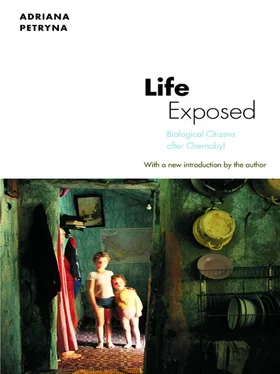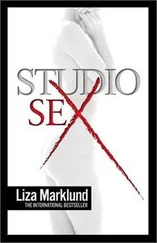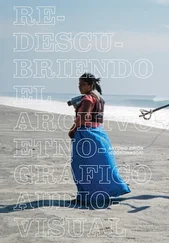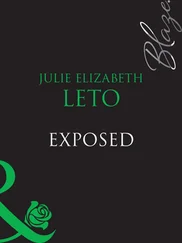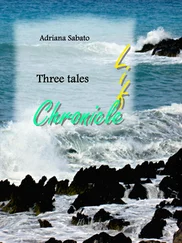Ukraine’s response to the Chernobyl legacy is unique in that it combines humanism with strategies of governance and state building, market strategies with forms of economic and political corruption. Such interrelated processes have generated new kinds of formal and informal social networks and economies that have allowed some segments of the population to survive on and benefit from politically guaranteed subsidies. [14] As of 1999, 50 percent of the population lives below the poverty line. The inflation rate is at 20 percent. The gross domestic product (GDP) has fallen by 60 percent since independence. This figure, however, overstates the fall in output, since the informal economy has been expanding (Country Brief, World Bank, 1999).
I worked in clinical and laboratory settings and in the now sizable social welfare apparatus dedicated to those affected by Chernobyl—in its state agencies, and in the offices of nongovernmental interest groups in Kyiv. Together, these sites make up a subsystem of the state’s public health and welfare infrastructure where increasingly poor citizens—former and current Chernobyl plant workers and populations resettled from contaminated zones—mobilize around their claims of radiation-induced injuries.
I term this social practice that has emerged in Ukraine a “biological citizenship” (1999). In Ukraine, where an emergent democracy is yoked to a harsh market transition, the damaged biology of a population has become the grounds for social membership and the basis for staking citizenship claims. By examining how state-operated research and clinical institutions and nongovernmental organizations of “the disabled” ( invalidy ) mediate individual and collective claims to biological damage, I show how rights and entitlements are contested, normed, and propagated. I also delineate the ways prior Soviet managements and scientific interventions into the lives of affected populations have patterned these dynamics. One can describe biological citizenship as a massive demand for but selective access to a form of social welfare based on medical, scientific, and legal criteria that both acknowledge biological injury and compensate for it. Such demands are also being formulated in the context of fundamental losses—losses of primary securities such as employment and state protections against inflation and a general corrosion of legal-political categories. Struggles over scarce medical goods and over the criteria that constitute a legitimate claim to citizenship are part of postsocialism’s uncharted terrain. A stark order of social and economic exclusion now coexists with a generalized discourse of human rights.
The concept of biological citizenship sheds light on a fundamental practice of polity building in postsocialism. Recent ethnographies of postsocialist and market transitions have revealed the varying ways new nation-states find legitimacy in people’s lives. These ethnographies have traced the way local narratives address the collapse of state socialism and the sudden conjuncture of capitalism, globalism, and new laws (Verdery 1996, Humphrey 1999, Wanner 1998, Ries 1997, Grant 1995). Contested forms of social inclusion and exclusion emerge through these processes. In the Ukrainian context, I consider the emergent form of biological citizenship from the following perspective: What is the value of life in that new political economy? How does scientific knowledge politically empower those seeking to set that value relatively high? What kinds of rationalities and biomedical practices are emerging with respect to novel social, economic, and somatic indeterminacies?
Existing ethnographic work shows that postsocialisms and conceptions of their future cannot be based on predictive models or treated as inevitably flowing toward free markets and democracy. Michael Burawoy and Katherine Verdery (1999) examine continuities between socialist and postsocialist societies as well as the evolving dependencies between state formations and global economics. Such dependencies, they note, “have radically shifted the rules of the game, the parameters of action within which actors pursue their daily routines and practices” (2). Ethnographic research methods remain fundamental for elucidating the dynamics of these processes at a local level, particularly where we are dealing with informal aspects of power relations and assessing the decisions people make based on limited choices available to them (Gledhill 2000:8).
Such “experience near” (Geertz 1983) studies of these transitioning political and economic worlds also reveal a fundamental reconfiguration of human conditions and conditions of citizenship. The traditional concept of citizenship casts citizens as bearers of natural and legal rights that are (and must be) protected as a matter of birthright. Such rights were indeed extended to all inhabitants of Ukraine, regardless of nationality, at the time of independence. Yet the issue of birthright as it relates to state legal protection remains vexed, particularly given the fact that persons born in some parts of Ukraine are arguably disadvantaged on the basis of intractable environmental and health threats. For these groups, the very idea of citizenship is now charged with the superadded burden of survival. Thus what is particular to Ukraine, what I will be illustrating throughout this work, is not just the forms given to a new democratic way of life (openness, freedom of expression, and the right to information) but the fact that a large and largely impoverished segment of the population has learned to negotiate the terms of its economic and social inclusion in the most rudimentary life-and-death terms. Moreover, these citizens’ experiences expose the existence of patterns that ought to be traced in other postsocialist contexts: the role of science in legitimating democratic institutions; increasingly limited access to health care and welfare as the capitalist trends take over; and the uneasy correlation of human rights with biological self-preservation. This book guides the reader through some of the contested spaces and politics of population management in the Chernobyl aftermath, highlighting the patterns by which science has become a key resource in the management of risk and in democratic polity building, and showing how Ukrainians employ knowledge of biological injury as a means of negotiating public accountability, political power, and further state protections in the form of financial compensation and medical care.
• • •
In March 1996, in the early stages of a year of field research in Kyiv, I went to the city hospital’s neonatal unit to talk with the neonatologists about what they saw happening among newborns. Were there any changes? Dr. Zoya, the head of the unit, bemoaned the fact that the hospital’s hematology unit “gets all the humanitarian aid.” She considered her labors to be unpaid charity work. “How did Chernobyl affect the birth and development of newborns?” I asked her. Before conversation started, Dr. Zoya assumed that I would want statistical data. She told me, “I will not be able to show you any statistics. You will have to go to the Health Ministry for that.” Neither then nor later did I ever ask for statistical information, yet every subsequent hospital administrator with whom I spoke told me the same thing: statistical information was off-limits. The urgent desire to withhold statistics on the part of these administrators (whose Chernobyl-related activities are directly controlled by state health administrators) only highlighted another point. Without statistics, the effects of the disaster had to be understood from other perspectives. What I understood was that bureaucratic windows on the Chernobyl reality were open to a certain kind of reality, inviting me to see its brute physical effects and nothing more.
Читать дальше
